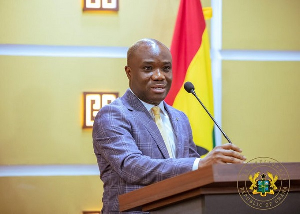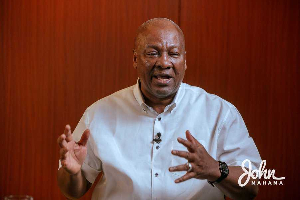“Natural resource fund does not find evidence that funds lead to better management of natural resources”- Davis J, R. Ossowski and O. Fedelino, eds. 2003 (Source: Escaping the Resource Curse by M. Humphreys, J.D Sachs and J.E Stiglitz).
In her quest to optimize revenues from the emerging oil and gas sector, Ghana has taken a step to set up a sovereign wealth fund to be known as the “Ghana Petroleum Revenue Management” that would in less than no time be passed into law. From experiences, it has come to be known that oil funds offer no guarantee for proper revenue management. Nigeria’s Excess Crude Account that seeks to protect the economy from oil price volatility has only bolstered destructive spending without gains. This has necessitated the consideration by policymakers in Nigeria including the National Economic Council and the Ministry of Finance of reforms or replacements including the creation of Sovereign Wealth Fund (Sovereign Wealth Fund requires legal standing, binding rules and transparency by Alexandra Gillies, Revenue Watch Research Associate).
Making matters very clear, the economic and political significance of oil funds remain very bleak. It is now argued by some economists that oil funds are no more effective than other measures for mitigating the threats of the Dutch Disease.
The situation in Ghana for now is not only interesting but very crucial for consideration. It is not far from right to say that Ghana has been pricked into setting up an oil fund and similar initiatives simply because others are doing so. Despite its oil fund, Chad continues to be one of the most corrupt countries globally apart from the fact that poverty among the people is high. Again, according to the report by Caspian Revenue Watch, “Caspian Oil Windfall: Who Will Benefit?”- Overview and Recommendations, oil funds Azerbaijan and Kazakhstan suffer governance flaws, including the lack of accountability and transparency. It is not wrong though if Ghana wants to undertake her initiatives in the oil sector to mirror that of Norway and other successful oil-rich states.
This article is the part two of my earlier article entitled “Is Oil Fund All Ghana Needs to Defeat the Resource Curse?” and seeks to ascertain whether or not oil fund is potent to reduce poverty without a well designed development framework. What exactly is the priority of the oil fund when Ghana has no medium to long term development strategy to drive the direction of outlays apart from stabilization fund that would serve to cushion the economy from volatility of oil prices? The question for consideration remains that; is Ghana’s proposed Petroleum Revenue Management strategy having a direction and as such an outlet to receive outflows?
Issues Uncovered
There is no gainsaying that Ghana needs to establish an oil fund to manage and prolong the benefits of its potential oil wealth to ensure inter-generational equity. Nonetheless, it is imperative to stress that for optimum gain, factors in governance and mode of expenses of the oil fund should operate in tandem. If the opacity that surrounds the flow of revenue streams in the mining sector is repeated then certainly, there would be no need to set up an oil fund.
Nonetheless, what is really informs the setting up of this fund? Is it that Norway, Kazakhstan, Azerbaijan, Chad, and Nigeria have this structure in place in their various economies?
The crux of my argument is that the country is seemingly setting up the oil fund without a concrete direction. The economics guiding a successful oil fund are inclined to operating within the jurisdictions of international standards like the Santiago Principles (good governance standards adopted by 23 sovereign wealth funds) and the Natural Resource Charter which identifies best practices for natural resource management. Alexandra Gillies in her advice to the government of Nigeria states that a solid legal standing, binding rules regarding inflows and outflows and transparency should be strictly adhered to if Nigeria wants to have an effective Sovereign Wealth Fund. What does Ghana learn from this?
Upon a critical assessment, Ghana ought to stick closely to these three principles if really her oil fund will have a direction and meaning to actualize real development.
According to a 2008 World Bank Report, Ghana has lacked the capacity to properly collect revenues and audit payments for the gold-mining companies during the past three years as gold prices more than doubled. Also, Environmental Protection Agency has lost its bearings towards ensuring environmental and public health safety in the mining sector. In light of the above, these institutions need to be strengthened and capacitated to handle the all-complex activities associated with the oil and gas sector. These expose the pitfalls on issues of transparency and binding rules regarding inflows and outflows in the country.
The issue here is governance. The permissive and malleable governance institutions in the country have hindered the true significance of mining in the country. The question that deserves to be asked is that, is Ghana pursuing the oil and gas sector with these known institutions considering the complexities of the hydrocarbon sector? Should sporadic statements and publications on the website of the Ministry of Finance and Economic Planning be taken to satisfying the principles of transparency when even the people have no right to demand information concerning revenue outlays? Certainly, not. The application of the voluntary Extractive Industries Transparency Initiative will have weak footing if the passage of the Freedom to Information Bill into law remains a mirage.
Medium or Long Term Development Strategy
Of a particular concern is the development framework that will guide the direction of expenses from the oil fund. What pertains now is that Ghana’s quest to set up a sovereign wealth fund would be driven by ad hoc and discretionary mechanisms rather a long term development framework. In a different perspective, annual government budget would be used to designate funds to the various sectors of the economy. Is budget enough to guide outlays from oil fund for equitable growth? In essence, the country cannot rely of annual budgets to drive the economy towards economic growth and development.
According to the proposed Ghana’s Petroleum Revenue Management Bill (PRMB), a Ghana Petroleum Account, to which all oil receipts are to be deposited, is to be established. From the Petroleum Account, an Annual Budget Funding Amount would be transferred to the national budget. Clearly, the path to growth is to be driven by the performance of the national budget and not a medium or long term development strategy.
It is imperative that Ghana formulates a long term development framework. Else the country can go no further regarding using oil revenues in a more prudent manner. A coherent development agenda and transparency generate abatement to self-centered dream of short-term political pressures to expend that would not benefit ordinary Ghanaians.
Undoubtedly, an oil fund that would not serve a coherent long term development strategy and consistent purpose of combating chronic poverty is a recipe for disaster. It is a case of “An oil fund without direction”. This is what Ghana ought to avoid if really it aspires to defeat the ravaging impacts of the resource curse. Without a set direction to be provided by a development framework, what is the guarantee that funds would not be used to satisfy political ambitions and be channeled to wrong pockets?
It sounds a bit more prosaic but believe it or not these issues can send the country into tailspin if totally neglected. The case for a written development strategy is very legitimate and strong. A development framework would soothe the destructive nature of volatile spending associated with the oil revenues. We would know exactly the amount of money to be designated to the various sensitive sectors of the economy.
The country should formulate feasible plans for the local people in the various sectors of the economy to provide outlets for funds that are transferred from the proposed oil fund. Which amount would be geared towards expanding the capacity of formal education, making health accessible to all and encouraging scientific research into intractable challenges that bedevil the country?
Conclusion
The Ghana Petroleum Revenue Management should encourage practical transparency and be legally binding to leaders of both present governments and successors. These and other considerations would bolster the effectiveness and more so the sustainability of sovereign wealth funds for Ghana.
The unavailability of a stable long term development strategy would severely undermine the sustainability of the oil fund as well as strengthening institutions especially sub-National Government Structures who are the recipients of major outflows for local community developments. It is worthy of note that harnessing oil resources is not just limited to good governance or strong institutions but decision makers should know the nitty-gritty of chain of decisions they take. This is only explicitly guided when there are development strategies that link the development of the welfare of the people to the usage of available revenues. We ought to seek for the best for the country in her exploitation and production of hydrocarbons. The insightful warning by Oxfam America and ISODEC that “haste makes waste” is still a force to reckon with.
The author, Stephen Yeboah is a freelance writer and the National Co-ordinator for Osagyefo Network for Rural Development (OSNERD), an NGO based in Kumasi [email: stephenyeboah110@yahoo.com]
* The opinions expressed and arguments employed in this article are the sole responsibility of the author and do not necessarily reflect those of OSNERD.
Opinions of Wednesday, 7 July 2010
Columnist: Yeboah, Stephen






![Akwatia MP, Ernest Yaw Kumi [L] and legal practitioner, Martin Kpebu Akwatia MP, Ernest Yaw Kumi [L] and legal practitioner, Martin Kpebu](https://cdn.ghanaweb.com/imagelib/pics/863/86389168.295.jpg)











